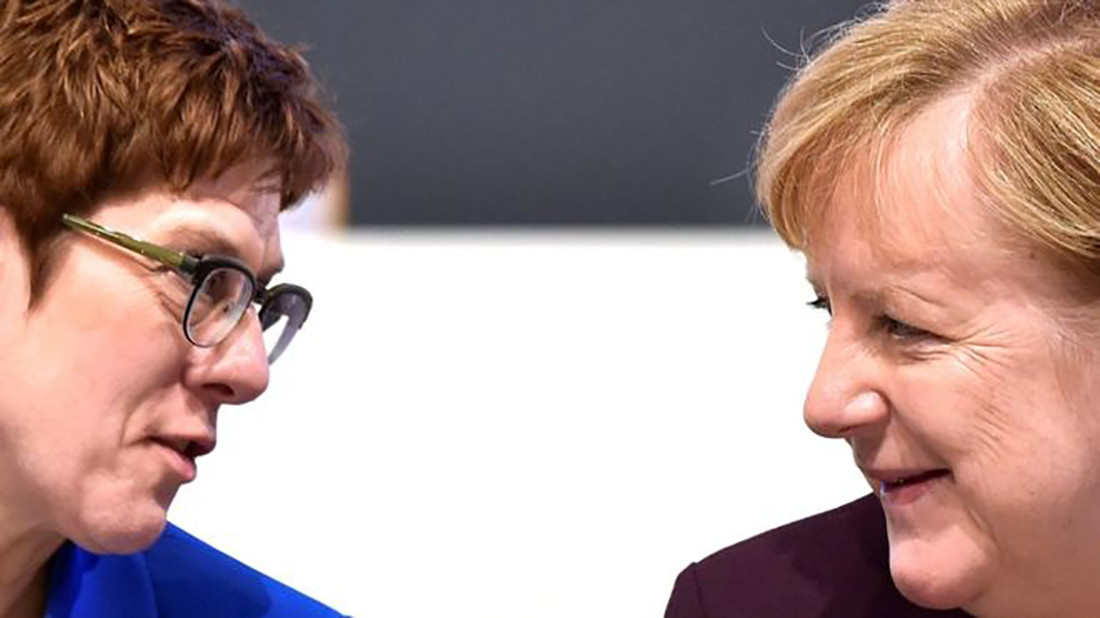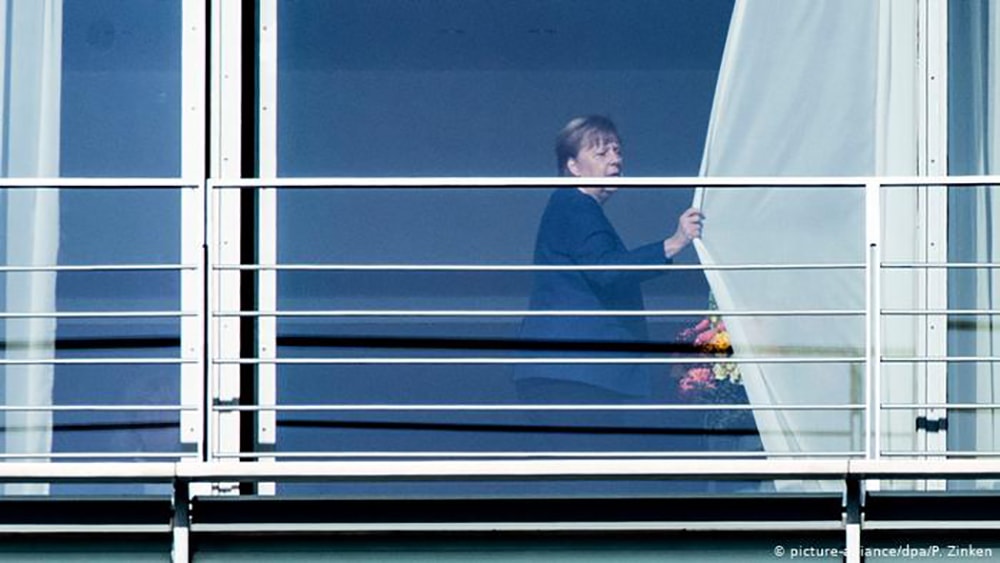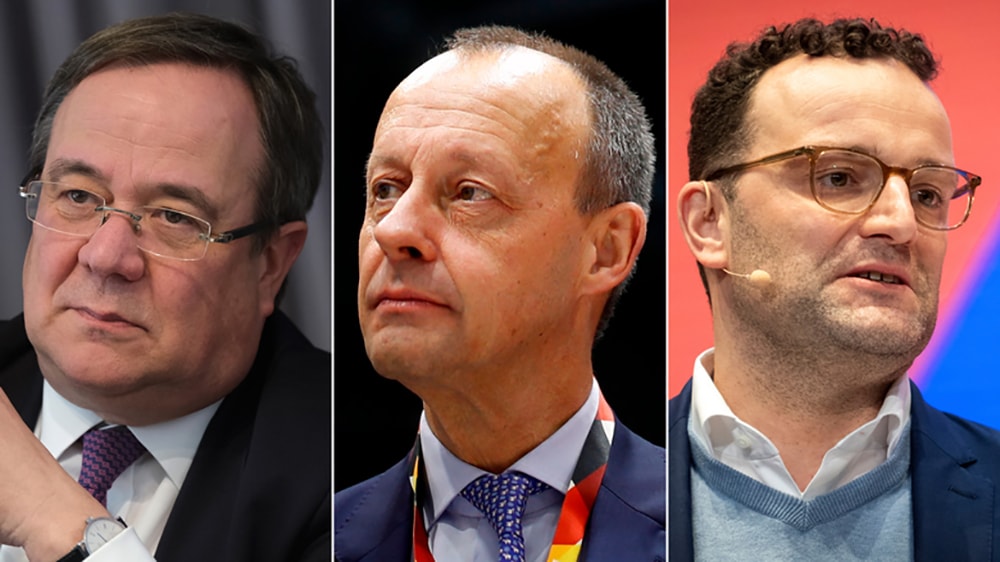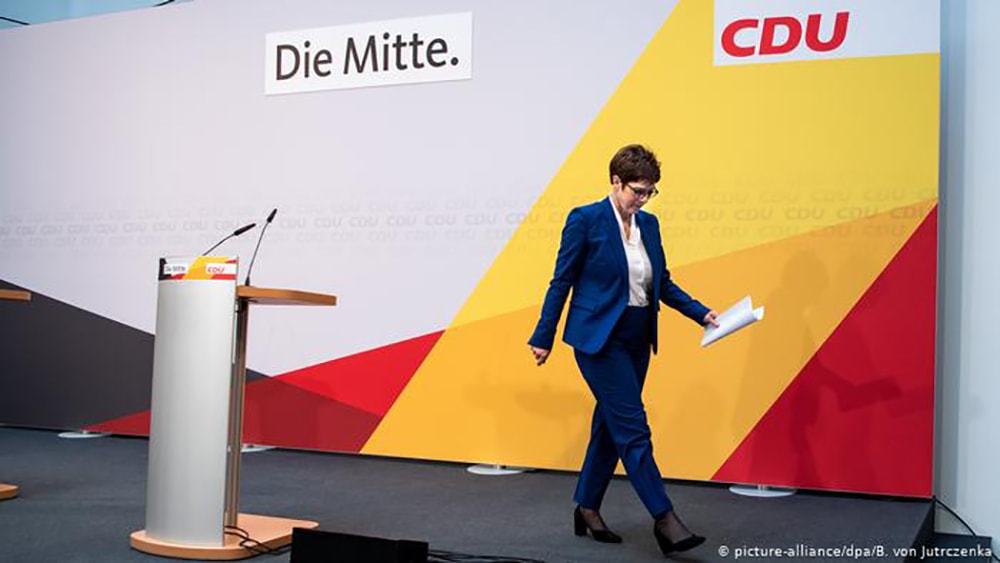'Off the rails' in the power transition in Germany
(Baonghean) - German Chancellor Angela Merkel's important power transfer plan has "derailed" after her personally chosen successor, Annegret Kramp-Karrenbauer, suddenly withdrew from this prominent position.
Self-made failure
Kramp-Karrenbauer, also known as AKK, is the person who was chosen by Mrs. Merkel, but on February 10, announced that she would not stand as the candidate of the Christian Democratic Union (CDU) party to run for German Chancellor in the upcoming federal election. Not only that, according to information from the CDU press office, she also resigned as chairwoman of this party.
 |
| Ms. Kramp-Karrenbauer (left) took over as leader of Germany's CDU Party in late 2018 and was expected to succeed Angela Merkel as chancellor, but suddenly gave up everything. Photo: Reuters |
It should be recalled that after nearly 15 years in office, Ms. Merkel announced in 2018 that she would not run again when her current term ends in 2021. At that time, she also resigned as leader of the CDU party and entrusted the seat to her successor, Kramp-Karrenbauer. However, just over a year later, the effort to ensure an orderly transfer of power, as well as Merkel's legacy, seems to have gone up in smoke.
According to CNN, some opinions say that this mess is a product of Mrs. Merkel herself. Henrik Enderlein - Principal of the Hertie School of Governance in Berlin commented: "For me, this failure is a manifestation of how Angela Merkel exercises power. She has never allowed anyone to rise up in the federal government and become a natural successor." According to Enderlein, after Merkel stepped down as leader of the CDU in 2018, the three most promising candidates for the vacant position were Friedrich Merz - who had many years of working outside of politics, and two relatively young politicians - the 38-year-old health minister Jens Spahn and Ms. Kramp-Karrenbauer.
“AKK (Annegret Kramp-Karrenbauer) was then just a relatively inexperienced regional governor of a small state in Germany”
 |
| Ms. Merkel has served as German Chancellor four times. Photo: DPA |
Merkel's political legacy in turmoil
Also discussing the story that is stirring up the political scene in Berlin, Florian Hense, an analyst working at Berenberg bank, commented that despite the turmoil, the possibility of Mrs. Merkel changing her mind and running again in 2021 is very rare. He believes that Merz and Armin Laschet, the prime minister of North Rhine-Westphalia, will likely be the leading candidates in the upcoming leadership race. Merz lost narrowly to AKK in 2018, and Hense said he is probably more suitable to take on the role of the far-right party, the alternative for Germany, than the other leadership candidates. He will certainly be a popular choice, especially for those who are looking forward to a bigger change when Mrs. Merkel's era ends.
Merkel has formed a grand coalition with the center-left Social Democrats (SPD), and some members of the CDU have criticized the “Iron Lady” for what they see as a leftward move. Merz, a corporate lawyer who spent the past decade at investment firm BlackRock, would be the name to move the party to the right. Spahn could also be announced, although Hesse believes his chances are somewhat limited because he is not a popular figure among the majority of Germans.
 |
| Armin Laschet, Friedrich Merz and Jens Spahn are the leading candidates to replace Angela Merkel, after Kramp-Karrenbauer resigned as CDU chair. Photo: CNN |
It is clear that whoever becomes the next leader of the CDU will face the challenge of reuniting a deeply divided party. That division was evident last week when a regional CDU branch in the eastern German state of Thuringia broke decades of taboo and joined forces with the AfD to elect a liberal candidate as state premier. “Thuringia is an example of how far the right wing of the CDU wants to go in making autonomous decisions and in tacit cooperation with the far-right AfD,” Enderlein said.
Ms AKK’s failure to force CDU members in Thuringia to stick to the party’s official line was just the last straw in a long list of moves that weakened her leadership. Speaking at a press conference earlier this week, she said the decision to resign had crossed her mind from time to time, calling on the CDU to become “stronger than it is today”.
After all, AKK’s surprise announcement has thrown the CDU in particular and Germany as a whole into political uncertainty. One possible consequence of this event is that the political leadership in Germany will focus more on domestic issues. If so, this may be bad news for the European Union, which is struggling to build a strong leadership while “recovering” from Brexit.
 |
| AKK's surprising announcement has pushed the CDU in particular and Germany in general into political instability. Photo: DPA |
Observers say the current situation shows that Ms. Merkel is still the "cornerstone" of German politics. The female politician who has served as Chancellor four times is about to leave politics, but she certainly does not want to associate her legacy with the word "bubble". However, this is likely the most feasible scenario. Ms. Merkel's departure will leave a large void, causing deep instability in the German political system, and this parliamentary democracy will face many ups and downs and difficult challenges in the near future.


